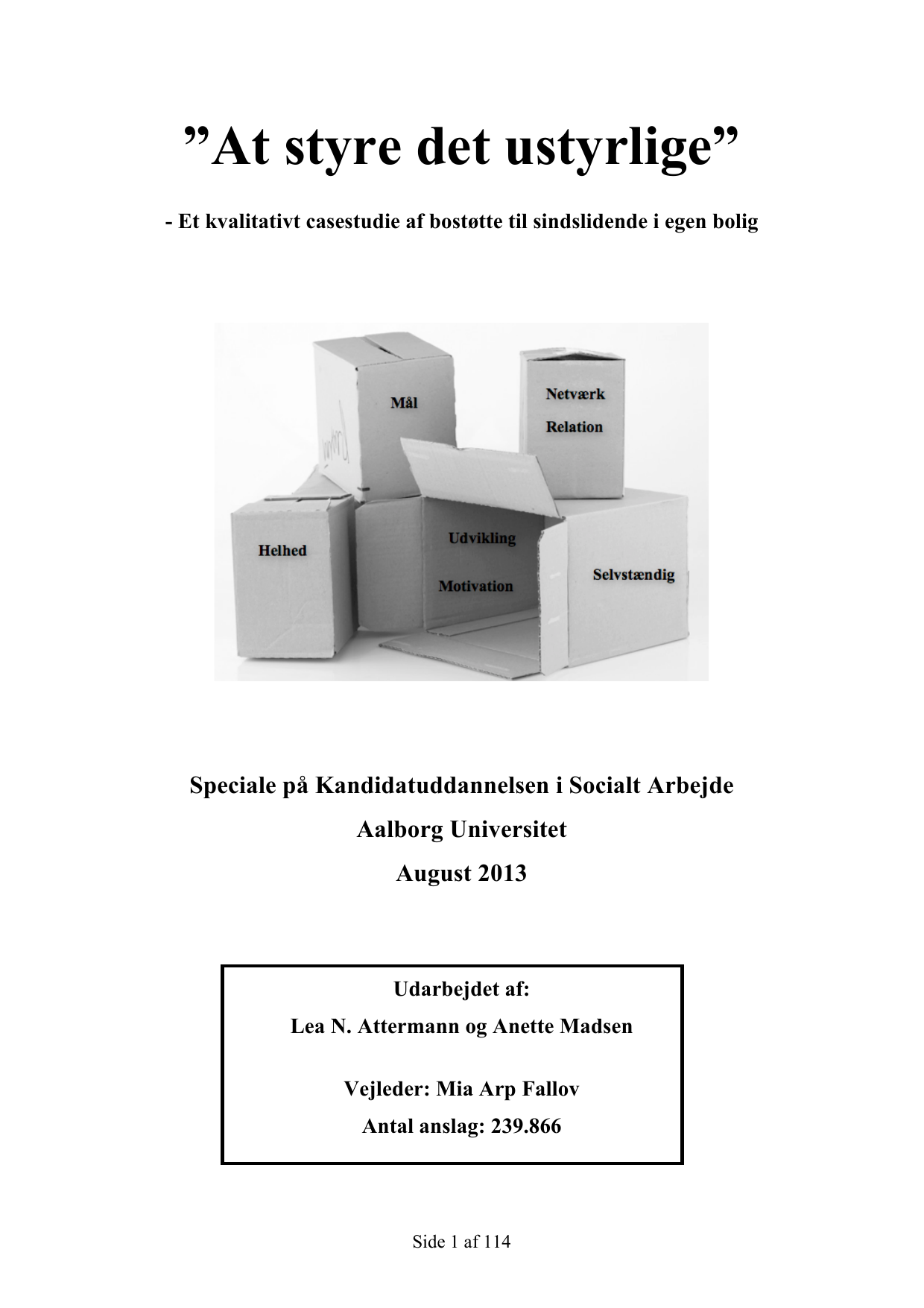
"At styre det ustyrlige": Et kvalitativt casestudie af bostøtte til sindslidende i egen bolig
Oversat titel
"To control the uncontrollable": A qualitative case study of home support to persons with a mental illness living in their own home
Forfattere
Semester
4. semester
Uddannelse
Udgivelsesår
2013
Afleveret
2013-08-14
Antal sider
113
Abstract
Dette speciale omhandler bostøtte til sindslidende i egen bolig jf. Serviceloven § 85. Den videnskabsteoretiske tilgang er socialkonstruktivisme, hvor vi undersøger, hvordan indsatsen konstrueres i et komplekst samspil mellem forskellige aktører; Institution, socialarbejdere og borgere. Specialets datagrundlag bygger på kvalitative interviews med myndighedsrådgivere, udførere og modtagere af støtten, samt observation af udførernes arbejde i borgernes hjem. Vi anvender Pierre Bourdieus begreber felt, kapital, habitus, doxa og symbolsk vold, samt Erving Goffmans teatermetaforer og teori om stigmatisering.
Abstract This master thesis examines home support for persons with mental illness living in their own home. It is recognized that home support is important to maintain or achieve a life close to the ordinary and to be independent of the social support system. This thesis is a qualitative case study based on different kinds of methods. It is mainly based on semi-structured interviews with social workers with authority, social workers who practice the home support, and persons with a mental illness, who receive home support in a Danish municipality. It is also based on observations of the practice of home support. The meta theoretical base is social constructivism which means that the study focuses on phenomena as constructed in time and dependant on context. The empirical data is analysed mainly in the light of the theoretical concepts field, battle, doxa, habitus and capitals of Pierre Bourdieu, but also the theory on stigmatization and impression management of Erving Goffman is in use. With these theories we seek to understand how and why the different groups of agents construct and practice the home support for persons with mental illness and which implications these constructions can have on the independence of the persons with a mental illness. The results show that the home support is constructed in a complex collaboration between the political and executive level, the two groups of social workers and the persons with a mental illness. It shows that the different agents don’t agree on how the home support should be constructed. They agree on the goal with the social support; independence, but they disagree on how to fulfil this purpose. The executive level and the social workers with authority think that independence of the mental ill is achieved through accurate goals and by using activity houses. The social workers that practice the home support think that independence is based on a good relation between them and recognition of the needs that occur along the way. The actors agree on that motivation for development and independence is essential, but they disagree on how this appears and if it is their job to support this. The social work of supporting persons with a mental illness is characterised by cost reduction. It is difficult to achieve home support and the help that is granted, is put on a waiting list to be practiced. Also, the persons with a mental illness have to achieve and develop their social needs and skills in an activity house despite that they don’t want to and many suffers from a great deal of anxiety. Therefore it can be concluded that the independence is at stake.
Emneord
